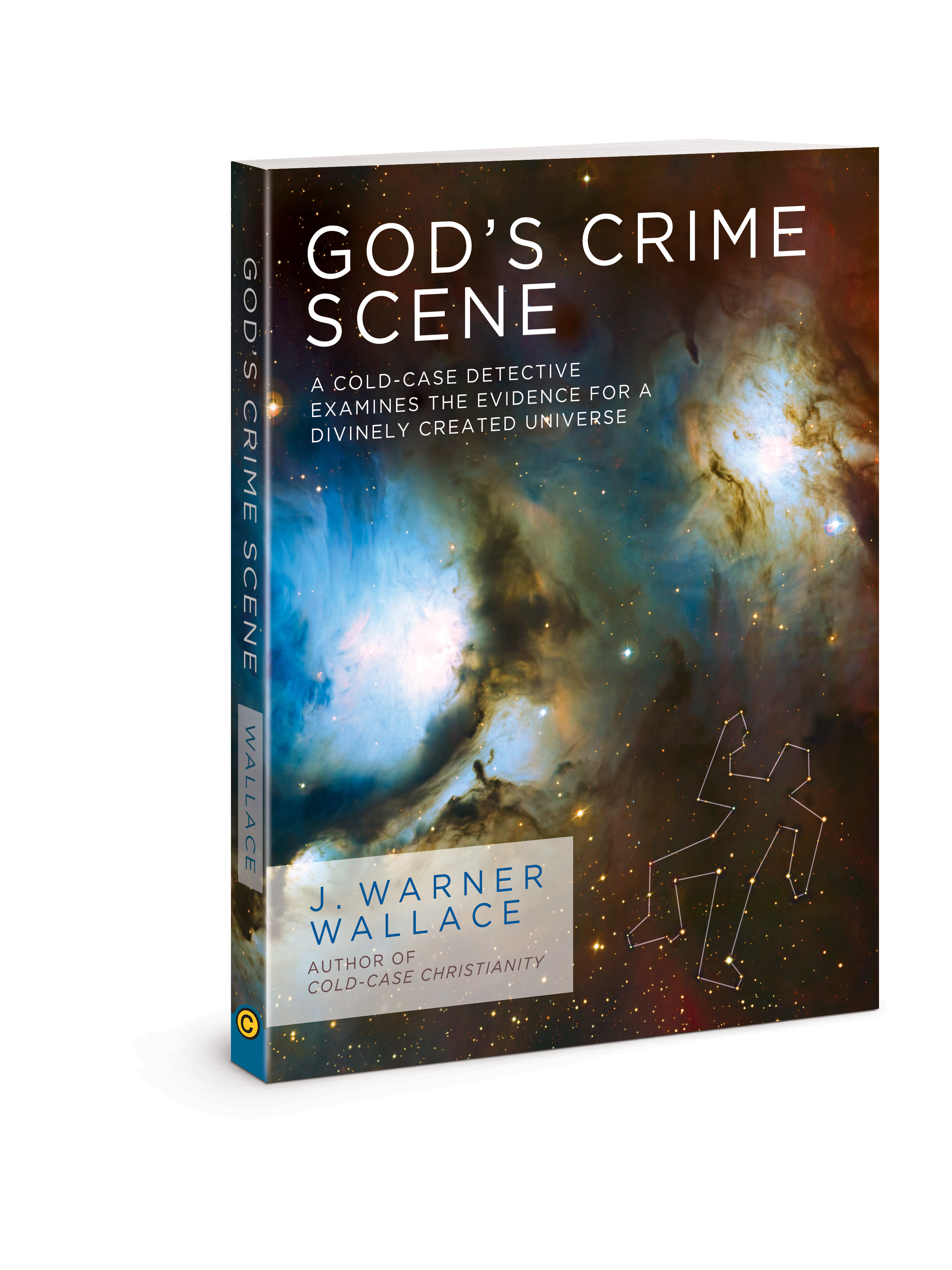We’ve created a free Bible insert that is a short review of the philosophical arguments for dualism (articulated more fully in a podcast). As Christians, we believe hold a dual view of world around us. We believe in the existence of the brain and the mind, the body and the soul, a material world and a spiritual realm. This concept of dualism, the recognition of two co-existent realms and realities, is critical to our faith as Christians. If dualism is not true (the opposite view is often called ‘monism’ or ‘physicalism’), there is no realm in which God exists, we are not souls designed for salvation and life with God, and there is no life beyond this one. As Christians, we believe hold a dual view of world around us. We believe in the existence of the brain and the mind, the body and the soul, a material world and a spiritual realm. Share on X
So how can we begin to prove the existence of something we cannot see? What kind of science could we possibly use? After all, science deals with the natural, physical realm, and we are trying to investigate something immaterial. Is science even the right instrument to get this job done? Probably not. Instead, let’s examine the case from a philosophical perspective to see if there is any rational reason to believe dualism is true. While much can be written on this issue, this short post will simply review the case for the soul based on the evidence from the Law of Identity:
A = A
The Law of identity simply states that something on one side of the equal sign is identical to something on the other side of the equation if they have the exact same qualities or properties. If this is true, we can say that they have an “identity relationship”. When applied to our examination of the soul, monists describe the following identity relationship:
the brain = the mind
the body = the soul
If this is true, all the properties and qualities on one side of the equations should be identical to all the properties on the other side of the equation. If there are differences in the qualities and nature of the items on opposite sides of the equation, we have two realities, just as Christians have argued all along. Here then, is the brief summary of arguments describing the differences between our bodies and who we are as souls:
Difference One: “Public” Versus “Private”
(The Private Knowledge Argument)
Physical Properties Can Be PUBLICLY Known
We can look at a piece of sculpture, for example. The sculpture is physical and can be seen (accessed) by everyone.
Mental Properties Are Only PRIVATELY Known
How the sculpture makes you feel is impossible for us to access publicly. You would have to tell us. We cannot determine this from a physical examination of your brain unless you tell us what you are feeling.
THEREFORE: Mental Properties Are NOT Physical Properties
The physical brain is something different than the immaterial mind. They are different because one possesses privately held knowledge (the mind) and the other (the brain) does not.
Difference Two: “I” Versus “My Body”
(The First Person Argument)
Like Everyone, I Only Use First Person Possessive Pronouns to Indicate Possession of Something Other Than “Me”
I use expressions like, “This is my toothbrush,” or “This is my mom,” because I am describing someone or something other than me.
Like Everyone, I Commonly Use First Person Possessive Pronouns When Describing My Body
I also find myself using expressions like, “This is my body,” or “This is my hand” when describing my physical body or some portion of my body.
THEREFORE: My Body Is Something Other Than “Me”
Just like my toothbrush is something other than me, my physical body is also something other than me. I am not my body. These are two different things. There are two realities, the material and the immaterial. (By the way, although we sometimes use the expression, “my soul” this is an inaccurate use of the term. We don’t have souls, we are souls.)
Difference Three: “Temporary Parts” Versus “Transcendent Identity”
(The Parts Argument)
Physical Entities Are Dependent on Their Parts for Their Identity
We know the difference between our car and someone else’s car in a parking lot, and we know the difference between our cell phone and someone else’s phone left behind in a library. We know this because we recognize parts are what establish the identity of physical objects
But We, as Humans, Are NOT Dependent On Our Parts for Our Identity
But no matter how much we have changed (even if we have an organ transplant), we know our identity is not at risk. I am still me, regardless of the fact I am now made of a completely different set of cells compared to my youth.
THEREFORE: Humans Are NOT Purely Physical Entities
For this reason, we know that we are more than mere physical entities, dependent on our parts for our identity. Once again, we know intuitively we have a transcendent identity. We are souls.
Difference Four: “Measurable” Versus “Immeasurable”
(The Measurement Argument)
Physical Entities Can Be Measured Using Physical Measurement Instruments
We can take out a ruler and measure the width and length of your brain. We can weigh it and calculate it’s mass.
But As Humans, We Possess Mental Entities (Thoughts, Wills, Desires and Sensations) That Are Not Measurable By These Methods
We cannot use physical measurement tools to examine our thoughts. Propositional content cannot be measured in this way.
THEREFORE: Humans Are More Than Physical Beings
There is a physically immeasurable dimension to our beings. We are more than matter. We are physically immeasurable souls.
Difference Five: “About Others” Versus “About Themselves”
(The Self-Existence Argument)
Mental Entities Are Not Self Existent
Our hopes, fears, concerns and worries are always about something else; something outside of themselves
But Our Brains, As Physical Entities, ARE Self Existent
Physical things are not about something else; they simply exist on their own and do not rely on other physical objects for their definition
THEREFORE: Our Brains Are NOT The Same As Our Minds
Brains are physical, self-existent entities, minds contain mental entities that are dependent on outside entities for their definition.
Difference Six: “Morally Determined” Versus “Morally Free”
(The Free Will Argument)
No Physical System is a Free Agent
They are either determined (one event following the other) or random
Therefore No Physical System Has Moral Responsibility
Because moral responsibility requires moral freedom of choice
Human Beings DO Have Moral Responsibility
We have the innate sense that each of us has the responsibility to act morally, and indeed, we observe we are free agents who do choose right from wrong freely
THEREFORE: Therefore Human Beings Are NOT Simply Physical Systems
If we are purely physical entities, we can only act as a series of events, and we are unable to act freely (this is the nature of physical things). Our free agency demonstrates we are more than simple physical objects.
The cumulative case from the law of identity demonstrates the difference between the nature of our bodies and our existence as souls:
BRAIN (BODY) = MIND (SOUL)?
Can Be Publicly Observed (Known) Can Only Be Privately Observed (Known)
Described in the Third Person Described in the First Person
Requires Parts for Identity Not Dependent on Parts for Identity
Measured with Tools Immeasurable with Tools
Is An Independent Physical Entity Is A Dependent Mental Entity
Responsive Only to Event Causation Able to Act Freely as a Causation Agent
I hope this very brief summary helps you make the reasonable and logical case for our lives as living souls. Join our Cold-Case Christianity Community for access to a downloadable Bible Insert on this topic.

For more information about the scientific and philosophical evidence pointing to a Divine Creator, please read God’s Crime Scene: A Cold-Case Detective Examines the Evidence for a Divinely Created Universe. This book employs a simple crime scene strategy to investigate eight pieces of evidence in the universe to determine the most reasonable explanation. The book is accompanied by an eight-session God’s Crime Scene DVD Set(and Participant’s Guide) to help individuals or small groups examine the evidence and make the case.
J. Warner Wallace is a Dateline featured cold-case homicide detective, popular national speaker and best-selling author. He continues to consult on cold-case investigations while serving as a Senior Fellow at the Colson Center for Christian Worldview. He is also an Adj. Professor of Christian Apologetics at Talbot School of Theology, Biola University, and a faculty member at Summit Ministries. He holds a BA in Design (from CSULB), an MA in Architecture (from UCLA), and an MA in Theological Studies (from Gateway Seminary).

































Pingback: What Happens to Our Souls When We Die? | Cold Case Christianity
Pingback: What Happens to Our Souls When We Die? | Apologetics ForumApologetics Forum
Pingback: Are There Any Good Reasons to Believe in Heaven (Even Without the Evidence from Scripture)? | New York Apologetics
Pingback: Why Does God Want Us to Have Resurrection Bodies? | Cold Case Christianity
Pingback: Why Does God Want Us to Have Resurrection Bodies? | Apologetics ForumApologetics Forum
Pingback: Is It Reasonable to Believe in Angelic Beings? | Apologetics.com
Pingback: Is It Reasonable to Believe in Angelic Beings? | Cold Case Christianity
Pingback: Is It Reasonable to Believe in Angelic Beings? | Apologetics ForumApologetics Forum
Pingback: What Happens to Our Souls When We Die? | Pastor Dave
Pingback: mid-week apologetics booster (4-6-2017) – 1 Peter 4:12-16
Pingback: 32. Is there Evidence that Humans have Souls? – BIG Questions
Pingback: Arguments for the Existence of the Soul | Brother Murf's Corner